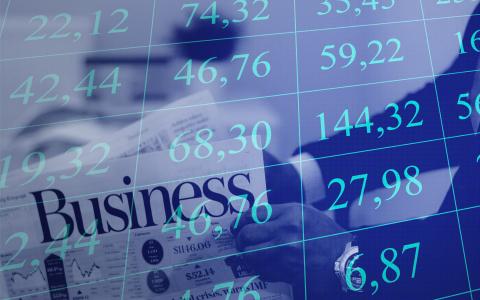
(Bloomberg) - A decision by U.S. President Joe Biden to nominate Lael Brainard as Federal Reserve chair instead of Jerome Powell could provide a narrow window of opportunity for traders in rates and foreign-exchange markets -- even if the shock wears off relatively quickly.
With the perception that Brainard might be less inclined to tighten monetary policy than the incumbent, the initial reaction in markets could see short-term interest rates pull back and a weakening of the dollar. But such moves could prove short-lived, as whichever candidate ends up in charge will ultimately be hostage to the uncertain inflation and growth landscape.
“Brainard certainly leans more dovish,” according to Blake Gwinn, a strategist at RBC Capital Markets. But both “are drinking from the same well” of information, “and both are going to be forced to reconcile with the realized inflation data on the ground.”
Powell, who has been in the job since 2018, remains the betting-market favorite to continue in the role, but the odds for Brainard have increased of late. Speculation that an announcement by the Biden administration is imminent saw the prediction-market odds for a Brainard confirmation reach around 40% at one point on Tuesday, although that has since dipped back closer to 30%. Powell’s chances are presently seen near 70%, while there is only very slight pricing for any other candidate.
Markets are unlikely to react much if Powell is tapped again, because he’s the favorite, but there could be a response to a Brainard nod, according to Praveen Korapaty, head of interest-rate strategy at Goldman Sachs Group Inc.
“Because she’s viewed as more dovish, I’d expect a rally in the level of yields and curve-steepening on the idea that a Brainard Fed perhaps wouldn’t want to go until a more expansive view of full employment is met,” Korapaty said. In Treasuries, two- and five-year yields might shed as much as 10 basis points, with longer-maturity yields pricing in more inflation risk premium.
The response of markets to news earlier this month that Biden had interviewed Brainard about the job may provide a taste of what to expect. Bonds rallied in the wake of that report, though market observers cautioned that the prospect of a Brainard Fed was only part of the equation, and that much of that move appeared to be based on positioning dynamics, geopolitical concerns and other factors.
Charles Schwab & Co. chief fixed-income strategist Kathy Jones says that a Brainard pick would likely cause U.S. bonds and currency markets to price in a later start to Fed rate increases. Futures currently indicate two quarter-point hikes for 2022, but a decision by Biden to change the Fed leadership could see at least one of those increases taken out by the market, according to Jones.
Of course, these and other bond-market mavens are doubtful that any extreme market reaction to a Brainard nomination would be sustained. That’s in part because the narrative of Brainard as more dovish is oversimplified.
In addition to both candidates being subject to the same vagaries of inflation and growth, there are also uncertainties around the composition of the rate-setting committee as a whole. The Biden administration has a number of seats to fill on the central bank board which it will presumably turn its attention to after it designates a chair, and also a vice-chair for supervision to replace the outgoing Randal Quarles.
A slate of candidates dovish enough to cause the market to price out any rate increases next year -- perhaps in a political calculation in which Powell gets renominated -- could take as much as 20 basis points off the two-year note’s yield, Goldman’s Korapaty said.
“If we get three more as dovish as Neel Kashari,” president of the Minneapolis branch of the Fed, “that would have a pretty significant influence,” Schwab’s Jones said.
By Elizabeth Stanton



